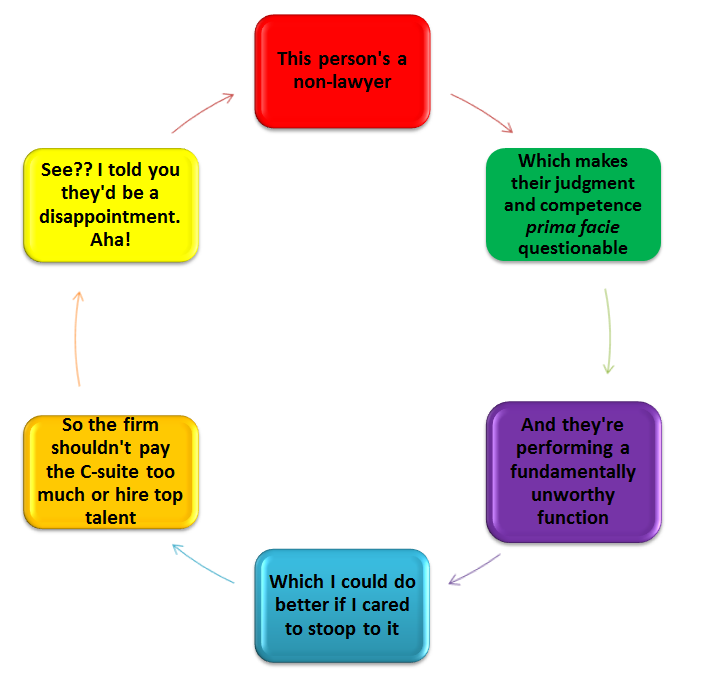If the urgency about taking our businesses deadly seriously as businesses wasn’t widespread when I had my memorable conversation with the Managing Partner who floated the GE thought experiment, it sure is today—or it had better be.
But as they say, don’t just take my word for it. I’d like to combine some insights from two seemingly unrelated McKinsey pieces that came out recently, Leaders everywhere: A conversation with Gary Hamel (May 2013), and Increasing the ‘meaning quotient’ of work (January 2013). First, Gary Hamel sets the stage nicely by explaining why The Leader of a firm—or even top leadership as a whole—simply can’t do it all themselves any more (emphasis supplied throughout quoted excerpts in this series):
I think the dilemma is that as complex as our organizations have grown, as fast as the environment is changing, there are just not enough extraordinary leaders to go around. Look at what we expect from a leader today. We expect somebody to be confident and yet humble. We expect them to be very strong in themselves but open to being influenced. We expect them to be amazingly prescient, with great foresight, but to be practical as well, to be extremely bold and also prudent.
How many people like that are out there? I haven’t met very many. Right? People who have the innovation instincts of Steve Jobs, the political skills of Lee Kuan Yew, and the emotional intelligence of Desmond Tutu? That’s a pretty small set. And yet we’ve built organizations where you almost need that caliber of person for them to run well if you locate so much of the decision-making authority in the top of the organization.
This implies that the responsibility for “leading” the organization has to be distributed down, but distributed down in a very particular way.
You will note that Hamel’s perspective comes from Corporate Land. Rather than assuming it doesn’t apply to us because we’re special, we’re lawyers (you have read this far from the beginning, right?) understand that we can learn a lot here, folks.
In most organizations, we don’t call people employees anymore—I mean, maybe somebody does—but we call them team members or associates. And we recognize that in the creative economy, most of that wealth creation is coming from people out there rubbing up against customers, innovating—certainly in a service economy, the experience economy. We talk more and more about cocreation with our customers, with our business partners.
So, already, I think we’ve understood that value is created, more and more, out there on the periphery. But we still have these organizations where too much power and authority are reserved for people at the top of the pyramid. Ultimately, yes, I think the structures, the compensation, the decision making must catch up with this new reality.
Most companies are now quite comfortable with 360-degree review, where your peers, your subordinates, and so on review your performance. In the best cases, that’s all online, and everybody can see it. But I would argue that the next important step is going to be 360-degree compensation because if you show me an organization where compensation is largely correlated with hierarchy, I can tell you that’s not going to be a very innovative or adaptable organization. People are going to spend a lot of their time managing up rather than collaborating. There will be a lot of competition that goes into promotion up that formal ladder rather than competing, really, to add value.
[…]So I think our organizations are going to evolve. We are going to catch up to this new economic reality. But it’s going to take a while because that old formal hierarchy is one of the most enduring social structures of humankind. I think making this transition—and it can seem quite daunting in a way—but I think the transition will happen step-by-step. It will happen small experiment by small experiment, where we start to say, “What can we do? What can we do in our organizations to enlarge the leadership franchise?”
Note Hamel’s critical word there: “Experiment.”




Bruce,
What you describe here has elements of two common problems on other areas: 1) succession in new companies; 2) administration of university departments. The unified vision and commitment to initial intellectual framework of the founders of an enterprise feed a contention that no other set of qualifications, even well after the initial founding, is realistic. Academic departments are infamous for a belief that the Chair should leave everyone else alone, and woe be to the Chair who is thought to be intellectually second-rate or a “careerist”.
The dysfunction that comes from both examples is legendary. What is common to both, and also to your proposition, is that the people who are supposed to be members of a community at a decision-making level act is if they do not understand that the life of their community depends on the continued functioning of the economic circulatory system. That is not the only sub-system that is important, and no one thinks that it is. But cash flow, backed ultimately by profits is essential to the continued existence of the functioning entity.
the sort of innovation required to change law firms can come from the top as well. Look at the example of Peter Kalis at K&L Gates. He released his firm financials and rightfully challenged the authenticity of the AmLaw 100. He believes in organic growth – not Swiss Verein merger mania. He has orchestrated mergers..yes. In key international markets. He’s one law firm managing partner to emulate – and I believe change can and should come from the top as well as other ranks within a law firm.